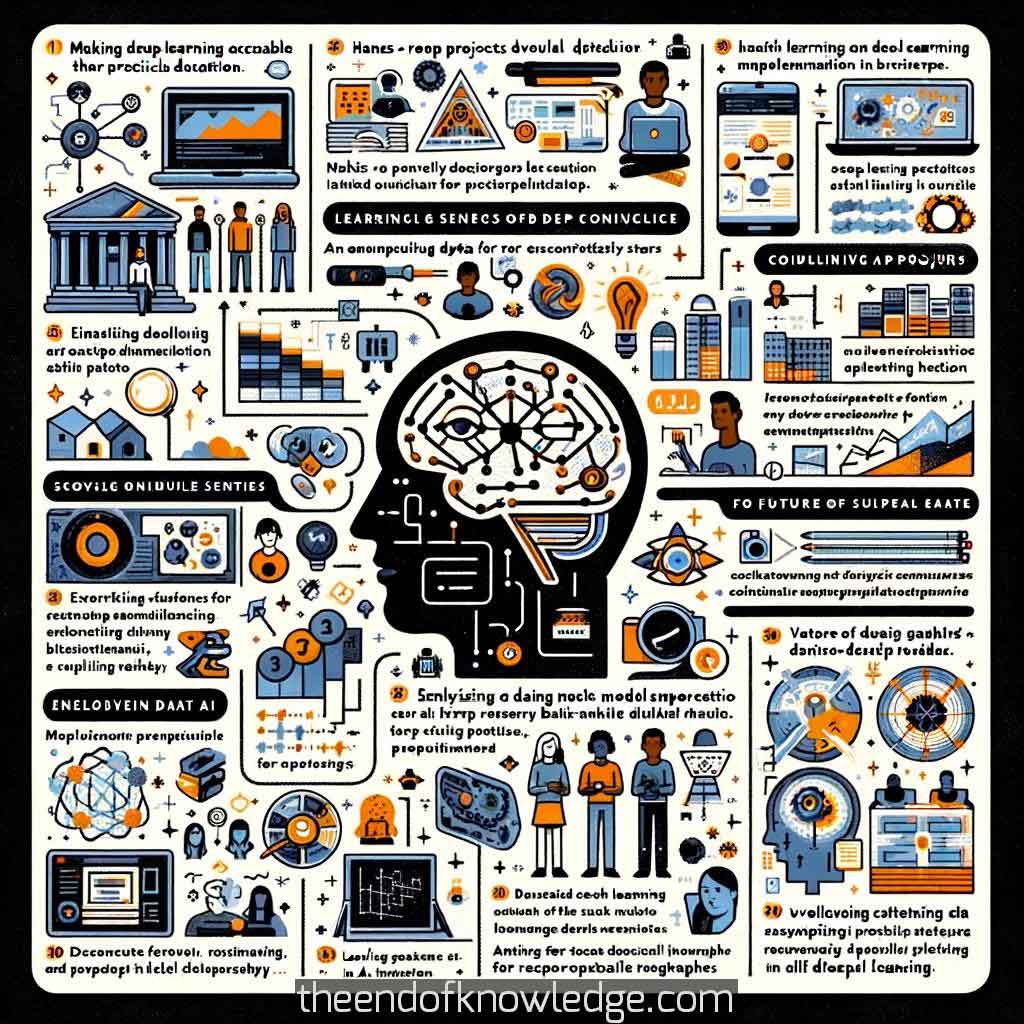 >
>
Concept Graph (using Gemini Ultra + Claude3):
Custom ChatGPT resume of the OpenAI Whisper transcription:
1.- The podcast discusses the philosophy behind Fast.ai's teaching methodology. It emphasizes the importance of hands-on projects and practical applications, allowing students to build a deep understanding of deep learning concepts. This approach contrasts with more traditional, theory-heavy curricula, aiming to equip learners with the skills needed to implement solutions to real-world problems.
2.- Jeremy Howard shares insights into the development of Fast.ai's deep learning library, which is designed to simplify and accelerate the process of implementing deep learning models. This library supports Fast.ai's educational goals by making advanced techniques more approachable to a broader audience.
3.- The conversation explores the impact of Fast.ai's work on democratizing AI, highlighting success stories of students from diverse backgrounds who have leveraged the course to enter the field of AI, start new careers, and launch startups.
4.- Jeremy and Lex discuss the importance of community in learning. Fast.ai has fostered a supportive community where learners can share knowledge, collaborate on projects, and provide mutual assistance, enhancing the learning experience.
5.- The role of ethics in AI and deep learning education is examined, with a discussion on the need to integrate ethical considerations into the curriculum. This includes understanding the societal impacts of AI technologies and promoting responsible AI development.
6.- The interview touches on Jeremy Howard's career transition from a consultant to an entrepreneur and AI researcher. This journey reflects his passion for making a meaningful impact through technology and education.
7.- Jeremy Howard emphasizes the significance of continuous learning and staying updated with the rapidly evolving field of AI. He shares his own experiences with learning and adapting to new advancements in technology.
8.- Fast.ai's contribution to research in deep learning and AI is highlighted, with examples of projects and papers that have influenced the field. This includes work on effective training methods, model interpretability, and applications in healthcare.
9.- The discussion concludes with thoughts on the future of AI education and how Fast.ai plans to continue evolving its courses and resources to meet the needs of learners at different levels of expertise, from beginners to advanced practitioners.
10.- Jeremy Howard discusses a project where Jason Antic, through Fast.ai, managed to colorize black and white photos and even entire movies with stunning results. This was achieved on a single GPU in Jason's home, demonstrating that significant AI projects can be executed outside of large studios, democratizing access to advanced technology.
11.- Lex Fridman and Jeremy Howard explore the potential of using cheap sensors to reconstruct high-quality audio from multiple sources. This discussion highlights a gap in current research and the opportunity for deep learning to innovate in audio processing, suggesting that significant improvements could be made with the right focus and resources.
12.- Jeremy elaborates on the concept of computational photography, pointing out how advances in this field have revolutionized image processing. He cites examples like Google Pixel's Night Sight feature, which allows for high-quality photos in low light without high-end lenses, emphasizing the role of deep learning in these technological advancements.
13.- The podcast discusses the untapped potential in audio processing, similar to advancements in computational photography. Jeremy suggests that by applying deep learning, it's possible to significantly enhance audio quality and applications, indicating a future where sophisticated audio enhancements become standard.
14.- Jeremy Howard shares insights on learning rate adjustments in deep learning, referencing Leslie Smith's discovery of super convergence. This concept allows certain neural networks to be trained much faster with higher learning rates, a finding that faced publication challenges due to the academic community's reluctance to embrace experimental results without theoretical explanations.
15.- The conversation shifts towards the future of learning rates and optimization techniques in deep learning. Jeremy predicts the diminishing need for manual tuning of learning rates, envisioning a more automated and efficient approach to training models that could make deep learning more accessible and reduce the reliance on human experts.
16.- Jeremy discusses the importance of data in deep learning, emphasizing the need for a thorough examination of data before and after model training. He advocates for using model predictions to gain insights into the data, which can help identify and correct issues such as data leakage, thereby enhancing model performance and understanding of the problem domain.
17.- The podcast touches on cloud platforms and hardware for deep learning, with Jeremy providing a comparison of Google's TPUs and Nvidia's GPUs. He also highlights the accessibility and ease of use of platforms like Google Cloud Platform (GCP) and specialized services like Salamander and PaperSpace for running deep learning models.
18.- The evolution of deep learning frameworks is discussed, with Jeremy charting the transition from Theano and TensorFlow to PyTorch, and eventually to Swift for TensorFlow. He critiques the limitations of Python for certain tasks and expresses optimism about the potential of Swift to offer more efficient and effective solutions for deep learning research and development.
19.- Jeremy Howard and Lex Fridman delve into the educational aspects of deep learning, discussing the importance of hands-on experience and the ability to apply learning to real-world problems. Jeremy advocates for the practice of fine-tuning pre-trained models as a critical step for beginners to achieve meaningful results in their domain of interest, highlighting the practical emphasis of Fast.ai's courses.
Interview byLex Fridman| Custom GPT and Knowledge Vault built byDavid Vivancos 2024